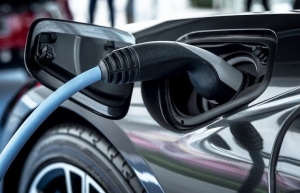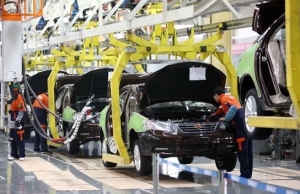Dealerships hoping for buying spree amid weak results
 |
| Dealerships hoping for buying spree amid weak results, illustration photo/ Source: freepik.com |
Chinese carmakers such as Chery, Wuling, Haima, Haval, Zhidou, and Lynk & Co have either made presentations in the Vietnamese market in the past couple of years, or announced plans to enter it in the near future.
In early August, the Haval H6 hybrid e-vehicle was launched in Hanoi, kicking off business for the Chinese carmaker in the Vietnamese market. Haval has only one showroom in the capital but plans to expand its distribution network. The H6 is a C-segment vehicle imported from Thailand, with a 1.5-litre hybrid engine and a price of around $46,000.
Chery, meanwhile, revealed it would start selling vehicles in Vietnam in 2024, and the first batches of the Omoda 5, S5, S5 GT, and Jaecoo 7 are already on the way.
Haima has a local distribution partner, Carvivu, and its first model in Vietnam is expected to be the MPV 7X, which will compete with the likes of the Mitsubishi Xpander and Toyota Veloz. The Chinese carmaker will import the electric version of the 7X, 7X-E, and a C-segment crossover SUV, the Haima 8S.
“Two showrooms in Hanoi and one in Ho Chi Minh City will be launched in the second half of the year,” said a representative of Carvivu.
Lynk & Co, belonging to Geely, will deliver four imported models in Vietnam in October, focusing on high-end products. The company was established by Geely in 2016, six years after it bought Swedish giant Volvo.
In May, Zhidou displayed its Zhidou A01 at an exhibition in Ho Chi Minh City. The carmaker looks to sell the commercial version of the car by the end of 2023. “We will set up a joint venture in Vietnam to assemble cars, with the logo and brand names customised for the local market. Zhidou will set up a large charging network across Vietnam when it starts selling the A01 model,” a representative said.
A few months ago, Wuling in partnership with local company TMT Motors entered Vietnam and began assembling its most successful model, the Hongguang Mini EV. With a compact size, prices could be set at VND240-280 million ($10,100-11,800).
Although the brands bring more options for consumers, as well as increase the competition alongside familiar brands from Japan, South Korea, the US, and Germany, the market has been relatively quiet in recent months, with a drop in on-year consumption.
And despite vehicle registration fee cuts, the Vietnam Automobile Manufacturers Association (VAMA) announced last week that around 23,800 vehicles were sold out in July, up only 4 per cent on-month but down 18 per cent on-year.
The number of passenger cars and special-purpose vehicles sold raised by 11 and 21 per cent respectively, while other cars declined by 16 per cent. More than 11,100 imported vehicles were sold out in July, up 34 per cent on-month, and almost 13,600 domestically assembled were delivered on the market, down 12 per cent.
TC Motor Vietnam reported losing its growth momentum. Its sales were over 4,000 cars last month, down by just over 1,000 (equivalent to 21 per cent) on-month. The consumption of the bestseller model of Hyundai has reduced by 11 per cent on-month. Toyota, Kia, Ford, Mazda, VinFast, and Honda all reported similar disappointing numbers for July.
“Truong Hai Auto Corporation has adjusted the selling prices of numerous Kia and Mazda models in a downward direction, but the number of buyers has not improved as expected,” said Nguyen Dinh Toan, a salesman in Hanoi’s Cau Giay district. “July is typically a quieter month, so these results were to be expected, despite the cutting down of registration fees and the entrance of numerous Chinese brands at affordable prices.”
Forecasting the market for the whole of 2023, VAMA general secretary Ninh Huu Chan said, “The year’s consumption may be approximately 354,000 vehicles, equalling 70 per cent of the previous year. The reason is that the economy faces a lot of difficulties, inflation is increasing, and various investment channels such as the stock market and real estate are struggling.”
“The appearance of Chinese cars may have a small impact on the consumption of well-known manufacturers. However, cash flow is tight, causing reduce in people’s income and expenditures, especially in buying cars,” Chan added.
 | Vehicle giants pivot to electrified and hybrid future Carmakers in Vietnam are making dramatic changes to their operations in pursuit of sustainability, through expanding the scope and style of their offerings. |
 | Decree stipulates examination, certification of imported cars’ technical safety The Government has issued a decree regulating the examination and certification of technical safety and environmental protection for automobiles and parts imported under some international agreements to which Vietnam is a party. |
What the stars mean:
★ Poor ★ ★ Promising ★★★ Good ★★★★ Very good ★★★★★ Exceptional
Latest News
More News
- Site clearance work launched for Dung Quat refinery upgrade (February 04, 2026 | 18:06)
- Masan High-Tech Materials reports profit: a view from Nui Phao mine (February 04, 2026 | 16:13)
- Hermes joins Long Thanh cargo terminal development (February 04, 2026 | 15:59)
- SCG enhances production and distribution in Vietnam (February 04, 2026 | 08:00)
- UNIVACCO strengthens Asia expansion with Vietnam facility (February 03, 2026 | 08:00)
- Cai Mep Ha Port project wins approval with $1.95bn investment (February 02, 2026 | 16:17)
- Repositioning Vietnam in Asia’s manufacturing race (February 02, 2026 | 16:00)
- Manufacturing growth remains solid in early 2026 (February 02, 2026 | 15:28)
- Navigating venture capital trends across the continent (February 02, 2026 | 14:00)
- Motivations to achieve high growth (February 02, 2026 | 11:00)

 Tag:
Tag:














 Mobile Version
Mobile Version